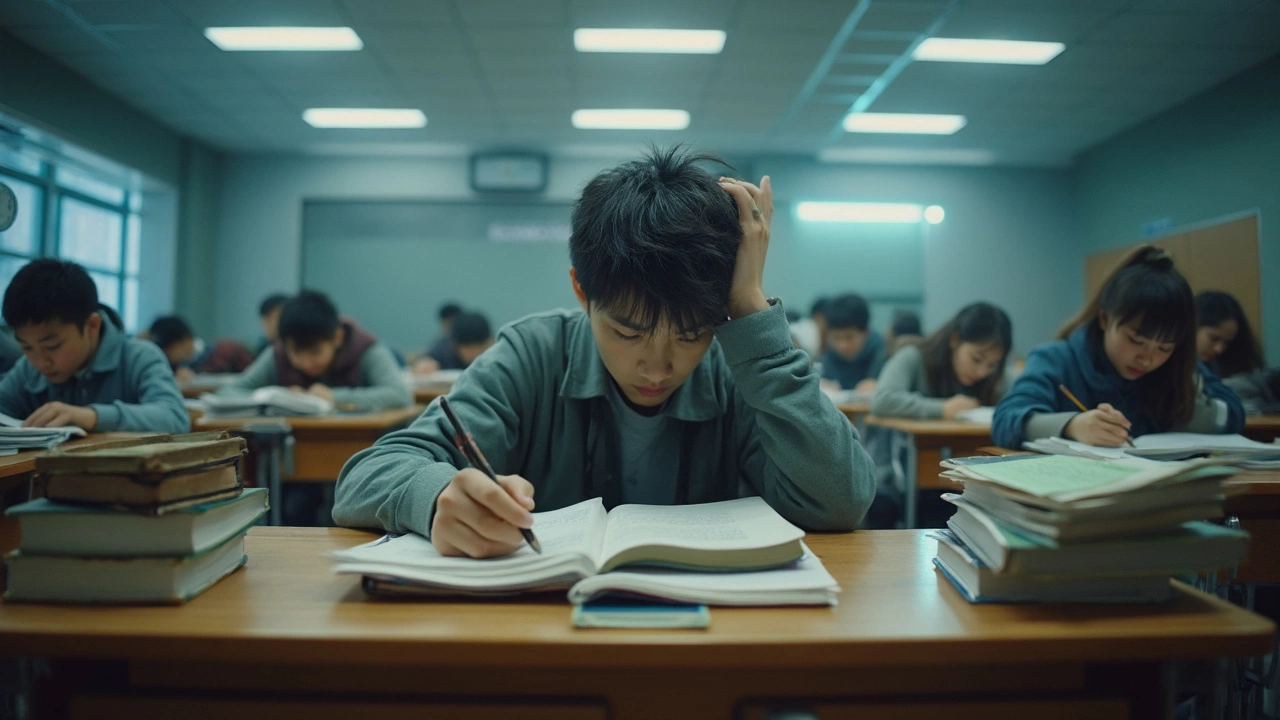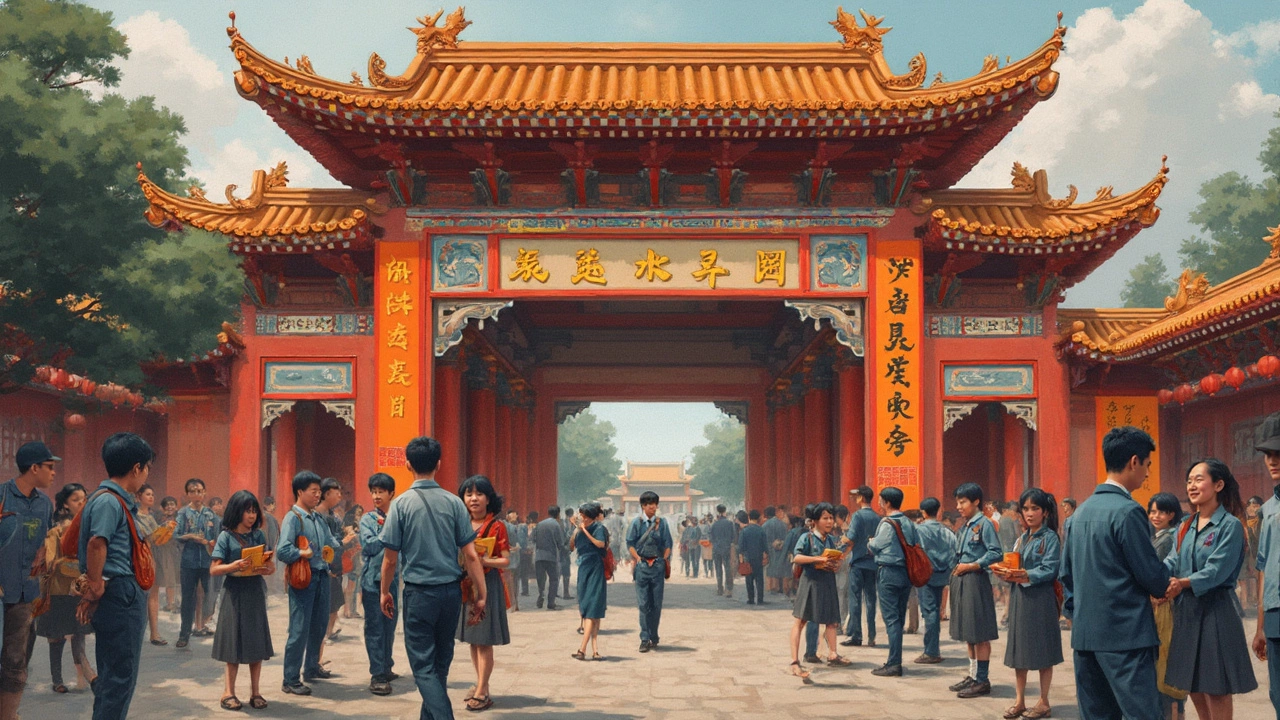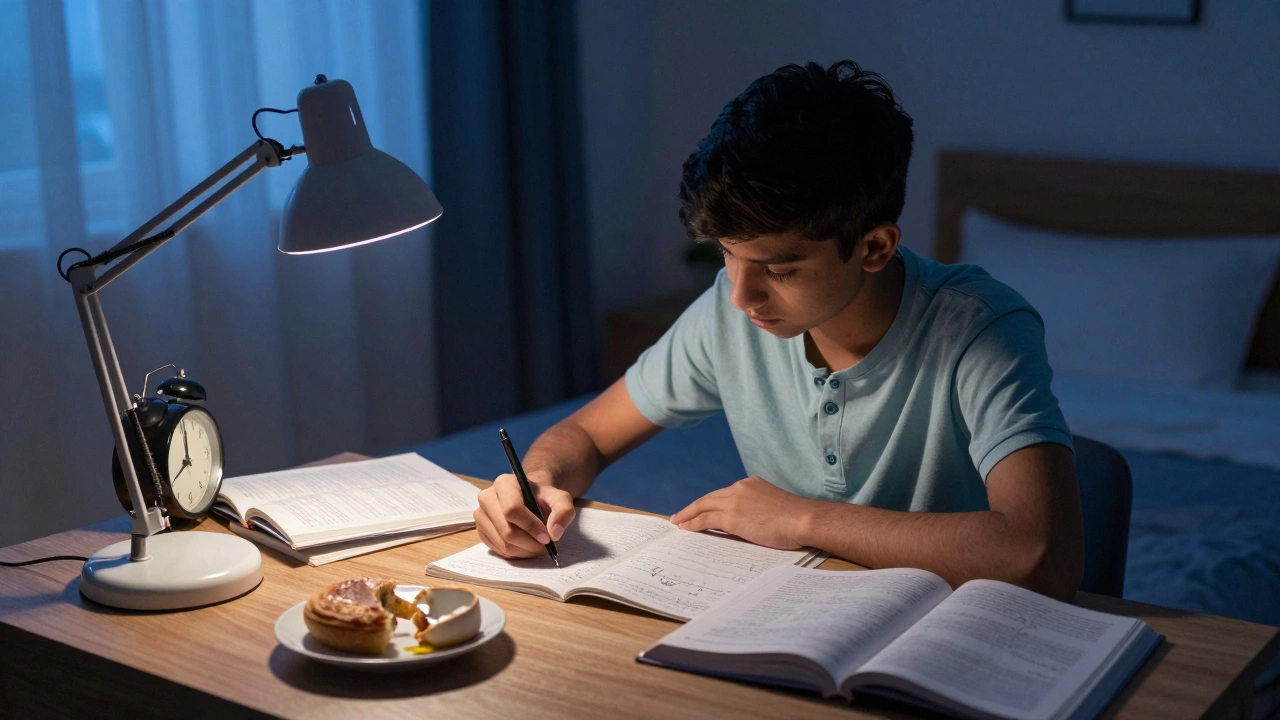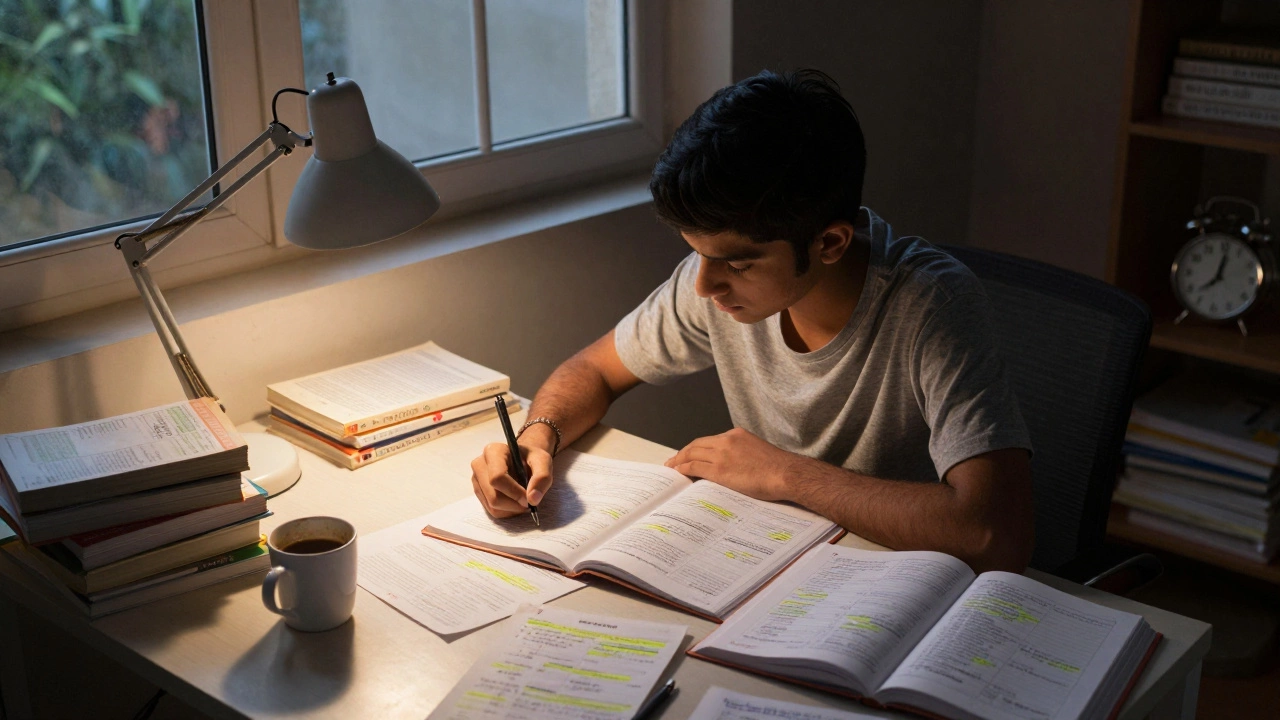Is the Gaokao Really the Toughest Exam in the World?

Picture this: over ten million students sitting for an exam that could pretty much map out their entire future. We're talking about the Gaokao, China's infamous National College Entrance Exam. This two-day exam is known to make even the most prepared students break a sweat. Wondering why? It's not just about the insane amount of information you need to memorize—it's also about the pressure from family and society to score high.
The Gaokao is notorious not just for its intensity but also for its role in determining which college you get into. We’re talking life-changing stuff here. Imagine carrying the weight of your academic future at a mere 18 years old! Sounds intense, right? It’s why many folks crown it the toughest and most stressful exam in existence. And guess what? It’s not only academics; your social life can go through the wringer too. With such high stakes, knowing what you're facing is half the battle.
- What Makes an Exam Stressful?
- Inside the Gaokao: The Details
- Comparing Gaokao with Other Stressful Exams
- The Impact on Students’ Lives
- Tips to Tackle the Gaokao Stress
- The Future of Stressful Exams
What Makes an Exam Stressful?
Alright, let's break it down. What makes exams like the Gaokao so gut-wrenchingly stressful? It's a mix of pressure, expectations, and the sheer volume of stuff to cram into your brain. First off, family pressure is huge. In places like China, getting top marks isn't just a personal win; it's a family affair. Many families invest a lot emotionally and financially in their child's education, expecting high returns in the form of excellent scores.
Then there's the societal expectation. For the Gaokao, the entire nation watches. This exam isn't just an academic hurdle; it's a rite of passage. Success can mean a spot in a top university, while failure could mean limited options for the future. No wonder students feel the weight of the world on their shoulders!
Let's talk about stakes. High-stakes exams like the Gaokao or the Indian JEE for engineering put a serious damper on a student's social life and mental well-being. The pressure to outperform peers adds another layer. You're not just competing with your classmates; you're up against millions.
And the content? It's massive. Take the Gaokao: it covers Chinese, mathematics, English, and either sciences or humanities. That’s a whopping amount of material. Imagine memorization and problem-solving, all bundled up in a time-crunched schedule. It's like prepping for a marathon every day for an entire year.
No wonder these exams earn their reputation as stress factories. But here's the deal: knowing these stressors is the first step to managing them. Tackling the sources of stress head-on can make the whole experience a tad bit more bearable.
Inside the Gaokao: The Details
Alright, so what exactly makes the Gaokao such a behemoth of an exam? For starters, it's a marathon covering two intense days, each with sessions lasting up to three hours. Think of it as the Olympics of exams, but the stakes feel even higher because your future hinges on it.
The exam includes a core set of subjects: Chinese, Mathematics, and a Foreign Language—usually English. After that, students can choose between arts or sciences based on their intended college major. Imagine cramming everything you've learned over three years of high school into these limited hours!
To make things more interesting (and by 'interesting,' I mean nail-biting), each province in China can set its own exam papers, although there's a nationally standardized version some regions use. This means students in different areas could face varying levels of difficulty.
Here's a neat fact: the average acceptance rate for top universities isn't exactly generous, often sitting around the low single digits. That's right, only a tiny fraction of test-takers will nab those coveted spots, which basically gives this exam its reputation as a mega-pressure cooker.
And the logistics? The scale is mind-boggling. Picture thousands of schools across China, over ten million students, and an army of invigilators. The entire country seems to hit pause just for the Gaokao days, no honking policy included, in a bid to give students the quiet they need to focus.
It's not just an exam—it's a nationwide event, impacting students, families, and even local economies. With stakes so high, no wonder it tops the list of stressful exams globally.
Comparing Gaokao with Other Stressful Exams
Let’s talk about how the Gaokao stacks up against other nail-biting exams that make students sweat bullets. The SAT in the United States, for example, is a big deal, but it doesn't quite have the life-altering pressure of the Gaokao. While the SAT can be retaken multiple times and is just one part of a college application packet, the Gaokao is a one-shot deal, and retakes aren't a common practice.
Then there's India’s JEE Advanced, which is notorious among engineering hopefuls. Only the top scorers in the JEE Main can sit for it, and it’s equally intense but still gives students more college choices. With the Gaokao, your score might literally dictate the university options you have, depending on the cutoff marks for different schools.
In Europe, the A-levels in the UK might seem like a circus, too. They're spread out over a couple of years and allow specialization in a few subjects only. That helps reduce the strain a bit because you're not balancing a zillion topics. Meanwhile, the Gaokao expects students to navigate a wide range of subjects all at once.
A recent survey showed that many students from these diverse backgrounds still see the Gaokao as more brutal, partly because of its “all or nothing” nature. Check this comparison:
| Exam | Duration | Subjects | Retake Option |
|---|---|---|---|
| Gaokao | 2 days | Varied subjects including core and elective | Rarely, and only the next year |
| SAT | 3 hours | Reading, Writing and Math | Multiple times yearly |
| JEE Advanced | 2 separate days | Physics, Chemistry, and Math | Once a year |
| A-Levels | 2 years | 3-4 subjects specialized | Yes, resits allowed |
Each exam has its own way of bringing out the best (or worst) in students, but the Gaokao remains unmatched in the sheer weight it places on your future in just a couple of days.

The Impact on Students’ Lives
Facing the Gaokao is no small feat and it shapes the lives of students in some serious ways. Think about it—the pressure starts as early as primary school. The exam isn’t just a hurdle; it’s a massive turning point that can dictate the trajectory of a young person’s future. How they perform directly affects their career options, the future earning potential, and even their social status.
With stakes so high, it’s no surprise that students, parents, and even teachers feel the mounting stress. Some students put in more than 12 hours a day in cramming sessions, attempting to soak in every possible fact. It’s not just about brainpower, but mental stamina too. A slip in focus on exam day could mean missing out on a spot at a top university.
The mental and physical toll isn't insignificant. Burnout and anxiety disorders are known issues among students prepping for the Gaokao. There’s a huge focus on academic performance, often overshadowing personal development, social life, and hobbies. As a result, many students experience isolation, with extracurricular activities taking a backseat.
There’s a silver lining though: resilience. Students who tackle the Gaokao often develop a strong work ethic and time management skills. It’s a boot camp for life skills, in a way—pushing them to persevere through stress so they can handle future pressures more effectively.
Tips to Tackle the Gaokao Stress
Surviving the Gaokao isn’t just about cramming your brain with facts. It’s about keeping your cool under fire. So, how do you make it out alive? Let’s dive into some practical stuff that can help you manage the pressure.
First things first, get yourself a study schedule that actually works for you. The key here is consistency, not intensity. Break down your study topics into chunks and tackle them bit by bit. It’s way less overwhelming than trying to devour a whole textbook in one go.
- Set clear goals: Know what you need to achieve every day. Crossing things off a list feels satisfying, doesn’t it?
- Prioritize breaks: Your brain’s like a muscle, and it needs rest. Use breaks to recharge so you can hit those books again feeling fresh and focused.
- Practice mindfulness: Techniques like deep breathing and meditation can reduce anxiety. Even five minutes a day can help.
Now, if you think you’re in this alone, think again. Forming a study group can spice things up. Teaching each other can solidify your knowledge much better than isolation can.
Don’t forget about your health. It’s easy to neglect when you're neck-deep in books. Yet, proper sleep, a balanced diet, and a bit of exercise can do wonders for your concentration and mood. A study even showed that students who exercised regularly performed better under stress. Think of it as giving your brain a leg up in this fierce competition.
| Key Element | Impact on Stress |
|---|---|
| Regular Exercise | Boosts focus and energy levels |
| Healthy Diet | Improves brain function |
| Sufficient Sleep | Enhances memory retention |
Finally, be kind to yourself. Mistakes happen, and no single exam defines your worth. Remember, it’s about progress, not perfection. You've got this!
The Future of Stressful Exams
What will exams look like ten or twenty years from now? Is the Gaokao going to stay as nail-biting as ever, or are we on the brink of a new testing era? As technology advances and educational methods evolve, the landscape of exams—especially the notoriously stressful exam like the Gaokao—is bound to change.
There's already chatter about incorporating more technology in exams. Picture virtual reality (VR) setups or AI-driven assessment tools that allow students to demonstrate knowledge without the traditional pen and paper. It sounds futuristic, but it could make things more manageable and maybe, just maybe, a little less stressful.
Then there's the push for more holistic evaluation systems. Some educators argue we should look beyond a single test score. Options like continuous assessments and project-based evaluations are gathering steam. These methods could provide a broader, more accurate picture of a student's abilities, reducing the immense pressure stacked on a single exam.
And hey, there's also the idea of tailoring exams to better align with real-world skills. Instead of cramming for countless subjects, future exams might focus more on critical thinking, problem-solving, and creativity. Skills that matter in actual jobs.
In some countries, there's already a shift toward open-book or cheat-sheet allowed exams. This approach values understanding over rote memory. The Gaokao might one day follow suit, adopting elements that encourage deeper comprehension rather than surface-level cramming.
The future looks promising, doesn't it? While there's no quick fix for exam stress, adapting our methods could ease the burden a bit. Until that day, let’s hope these innovations come sooner rather than later, because the anxiety that comes with a stressful exam is real and affects millions of students every year.


